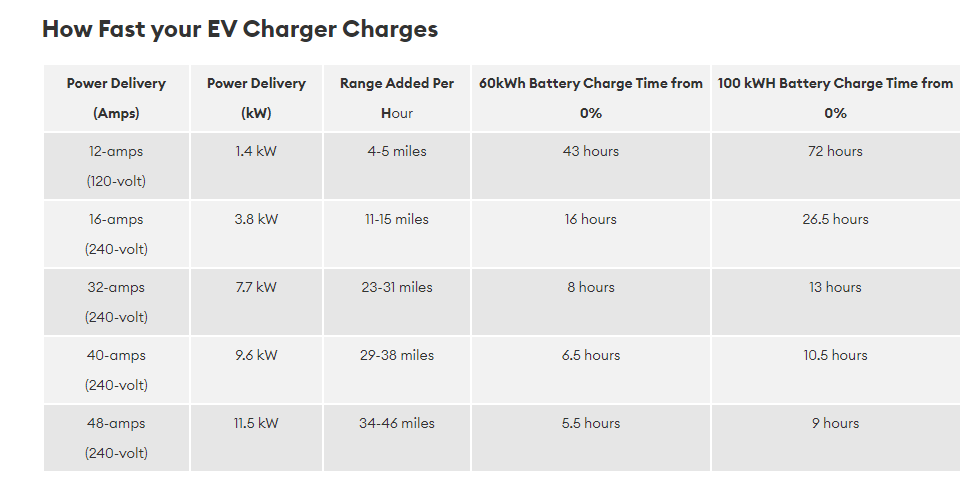If you’ve determined that the supplied charger isn’t adequate for your daily charging needs, you’ll need to consider a number of factors to determine which EV charger is right for you.
Cost: There are many different EV chargers to choose from, with prices ranging from $200 to over $1,000.
Plug-in or Hardwired: EV chargers are available in plug-in or hardwired options. Plug-in units offer the flexibility of easily removing the charger to use in another location, or perhaps return it for a replacement if there’s ever a problem. Hardwired chargers are permanently affixed to the wall and require an electrician to disconnect and remove them.
Cable Length: EV chargers come with cables that can be as short as 12-feet and as long as 25-feet. Choose one that has a cable long enough to reach the charge port of your car in any position you park it. Get a cable at least 20-feet long.
Smart or Dumb: Smart EV chargers come with apps and allow the owner to do things like review charging sessions, monitor real-time charging, start/stop a charging session, schedule charging, set up reminders to plug in, and more. Dumb chargers don’t have the ability to do anything but charge your EV, which is all that some EV owners want from their charger. Dumb chargers do stop when the battery if full.
Power Delivery: You want your EV charger to be able to deliver at least 32-amps (7.7 kW) and ideally 40-amps (9.6 kW) to the vehicle. We recommend this because even if the EV you own today cannot accept that much power, most likely the next EV you get will, and you’ll future-proof your garage by getting the right charger today.
Plug in Hybrids usually accept a lower amount of power than fully electric BEVs do. A typical PHEV can only accept up to 16-amps, and that’s fine because they have smaller batteries to recharge. However, BEVs have large batteries, because unlike PHEVs, they are entirely reliant on the battery for their driving range.
For home charging, BEVs sold today can accept between 30 amps and 48 amps. Therefore, it’s important to know how much power your EV can accept when you shop. However, you shouldn’t necessarily let your current EV’s charging rate dictate your purchase, because your next EV may be able to accept more power.
With daily charging, EV owners are usually only topping off, rather than filling up. A common mistake that new EV owners make is buying the most powerful charger, only to later realize they could have managed just fine with a lower-powered, less expensive charger. You’ll rarely pull into your garage with an empty battery, so the time it takes to charge your EV from 0% to 100% shouldn’t be the primary consideration. You only have to replenish the amount of energy you used that day.
Don’t rush to get the most powerful EV charger until you examine how many miles of range you’ll need to replenish daily. We’ve assembled the chart below to help you understand how many miles per hour of range you can replenish depending on the power output of your EV charger.

Contact Person: Miss. Kiki
| WhatsApp : | +8617763224709 |
|---|---|
| Skype : | +8617763224709 |
| WeChat : | +8617763224709 |
| Email : | kiki@lifepo4-battery.com |